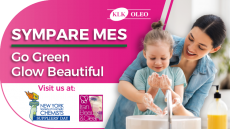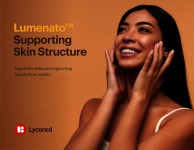WATCH: Three ways China’s young consumers are changing the beauty landscape
A report by Reuter Communications has uncovered how changing the mindset of younger consumers are impacting the tastes and expectations of China’s young beauty consumers.
Researchers spoke to several hundred beauty consumers across first-tier cities in China to learn how brands can stay head of the rapidly changing consumer and stay ahead in this competitive arena.
1 – A new kind of shopping experience
China may be at the forefront of digital innovation, however, beauty’s brick-and-mortar presence will continue to thrive, in spite of the e-commerce revolution.
The report found that 86% of consumers surveyed preferred to shop for beauty products offline.
These consumers cited trust of authenticity, a wider variety of choice and the ability to try products as reasons they would opt to head down to a physical store.
However, young consumers born after 1990 said they would prefer less interaction with sales assistants.
Instead, they are looking for high-tech and holistic retail experiences.
Jerri Ng, Head of Fashion and Beauty at Reuter Communications, said these consumers were looking for a ‘digital playground’ to complete their shopping experiences.
“They want the ability to play with personalisation via VR, AR and AI – meaning that they can ‘check in’ on WeChat on arrival and receive a personalised virtual tour. They want to be able to virtually ‘try’ different products via their phones – and of course try in reality.”
Ng added that we are already seeing beauty brands push the boundaries to bring consumers unique retail experiences.
Last year, SK-II launched its Future X smart store in Shanghai which was equipped with facial recognition and AI technology.
Most recently, M.A.C. Cosmetics unveiled a concept store that allowed customers to use WeChat to get personalised recommendations and offered 3D-printed products.
2 – Niche is the new cool
The notion of luxury is changing as more Chinese consumers become more discerning.
According to Ng, young consumers who have grown up around luxury goods no longer want to use the same brands as their parents.
Instead, they are seeking new luxury brands that allow them to express their individualities, paving the way for niched luxury brands.
“Niche can be difficult to define, but ‘new, expressive, cool’ would be a start… [Chinese consumers] want a brand that encourages self-expression and can inspire their attention. Niche brands are usually bolder and more ‘unique’ in their product and communications, as well as being in tune with the vibe of influencers,” said Ng.
The desire for niche is seeping into the rising male grooming market, with 92% of male beauty consumers indicating a preference for niched brands.
Ng elaborates: “Savvy male luxury consumers who are interested in beauty are also interested in real detail: knowing the brand, the product ingredients, the related influencers and such, all of which lets niche brands shine.”
3 – Hottest social platform for beauty
The report also noted that Xiao Hong Shu, or Red Book, was quickly becoming the top platform for beauty consumers.
Xiao Hong Shu started out as a platform for the beauty community to share shopping and product experiences. Today, it is also an e-commerce platform.
According to its website, the two-year-old social platform has an estimated 200 million users which is made up of 88% of females born after 1980.
Ng believes the platform will become increasingly important for brands and will eventually become a necessity.
“While no brand should jump on a platform just because it is new, Red Book has reached the point where it is the most suitable platform for the target audience,” she said.
Before reaching out to beauty influencers on the platform, Ng said brands have to be aware that it has relatively protective rules on the use of influencers and advertising.
“It’s one of the very few platforms that enforces rules related to paid or sponsored ads and this ensures that the userbase has trust. So brands will need to pay attention of the rules and watch how they develop over time.”










![Able C&C has furthered its partnership with Japanese discount chain Daiso with new makeup launch. [A'pieu]](/var/wrbm_gb_food_pharma/storage/images/_aliases/wrbm_tiny/publications/cosmetics/cosmeticsdesign-asia.com/headlines/brand-innovation/a-pieu-and-daiso-launch-exclusive-2-makeup-line/17339117-1-eng-GB/A-pieu-and-Daiso-launch-exclusive-2-makeup-line.jpg)
![Down Under Enterprises is setting sights on the Asian market as environmental sustainability and traceability become increasingly important. [Getty Images]](/var/wrbm_gb_food_pharma/storage/images/_aliases/wrbm_tiny/publications/cosmetics/cosmeticsdesign-asia.com/headlines/market-trends/down-under-enterprises-shifts-focus-to-china-as-environmental-sustainability-traceability-come-into-the-spotlight/17304932-1-eng-GB/Down-Under-Enterprises-shifts-focus-to-China-as-environmental-sustainability-traceability-come-into-the-spotlight.jpg)
![News updates from Shiseido, Dr.Ci:Labo, Sephora, and more. [Shiseido]](/var/wrbm_gb_food_pharma/storage/images/_aliases/wrbm_tiny/publications/cosmetics/cosmeticsdesign-asia.com/headlines/brand-innovation/updates-from-shiseido-dr.ci-labo-sephora-and-more/17334944-1-eng-GB/Updates-from-Shiseido-Dr.Ci-Labo-Sephora-and-more.jpg)

![Clariant has underscored the importance of localisation strategies and distribution capabilities in China with beauty trends evolving at a rapid pace. [Getty Images]](/var/wrbm_gb_food_pharma/storage/images/_aliases/wrbm_tiny/publications/cosmetics/cosmeticsdesign-asia.com/article/2024/04/16/clariant-emphasises-importance-of-localisation-in-the-era-of-viral-trends/17327969-1-eng-GB/Clariant-emphasises-importance-of-localisation-in-the-era-of-viral-trends.jpg)

![We dive into our most-read stories on formulation and science. [Getty Images]](/var/wrbm_gb_food_pharma/storage/images/_aliases/wrbm_tiny/publications/cosmetics/cosmeticsdesign-asia.com/headlines/formulation-science/skin-science-latest-stories-on-cosmetics-science-and-formulation/17334719-1-eng-GB/Skin-science-Latest-stories-on-cosmetics-science-and-formulation.jpg)


